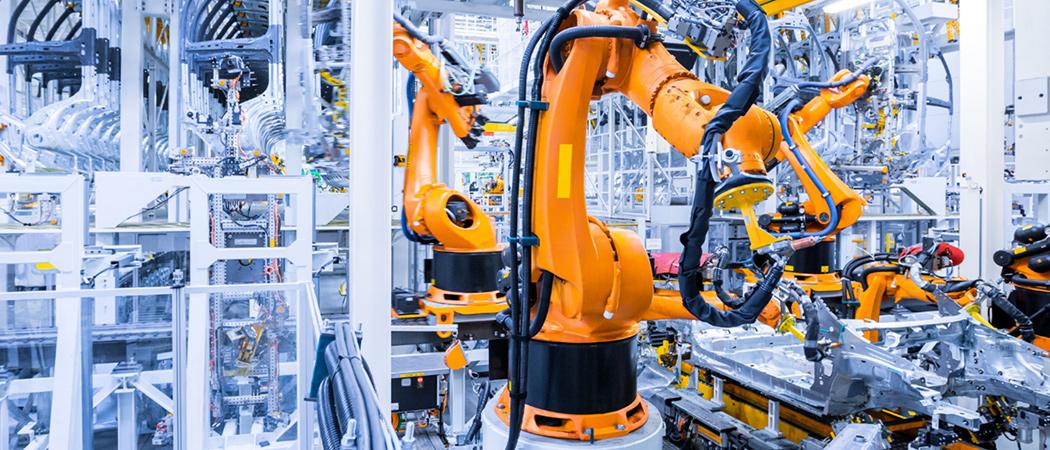The European Factories of the Future Research Association (EFFRA) is collaborating with the European Commission and the EU member states to implement the new Made in Europe manufacturing partnership

Manufacturing is the backbone of the European economy. Europe occupies a leading position in numerous industrial manufacturing sectors, such as machines and pharmaceuticals. The overall production accounts for 17.3% of EU GDP and 83% of exports, making Europe the world’s largest exporter of manufactured goods. Besides, manufacturing inspires 20% of global R&D investments and generates one-third of high-quality scientific publications.
Thanks to the strengths of its manufacturing industry, the EU annually achieves a significant surplus in the trade of manufacturing goods, which, in 2018, amounted to around €286 billion. That allows the EU to finance the purchase of other goods and services, such as raw materials, energy (oil and gas), and services.
That makes the manufacturing sector’s value tangible for everyone, from its employees to consumers and governments.
But European manufacturing companies need to constantly affirm their strength amid steadily growing competition, primarily from Asia and the United States.
Yet remaining competitive is not Europe's only challenge, as it must also face the twin transition: green and digital. Manufacturing is currently going through an exceptional transformation process driven by several factors, such as developing new technologies (AI, big data, blockchain, etc.), the increased demand for efficiency and product safety, sustainable production and a commitment to the circular economy. To address all these challenges, Europe needs to accelerate innovation and investments.
European industry, particularly Europe’s engineering and manufacturing companies, undertake a great deal of research and innovation. Pre-competitive collaborative research has a long tradition in Europe: companies operate within regional innovation and industrial ecosystems, often with world-class companies leading, and with SMEs and research institutes involved in the process.
Since 2010, the European Factories of the Future Research Association (EFFRA) has represented the private sector in a manufacturing partnership with the EU Institutions. Originally created under Horizon 2020, which ran from 2014 to 2020, the Factories of the Future Partnership had a €1.15 billion budget and oversaw more than 210 projects involving more than 1,000 organisations from across Europe. The success of the Factories of the Future Partnership has made it a template for the Made in Europe Partnership under Horizon Europe (2021-2027).
Why does Europe need a manufacturing partnership?
With a budget of around €1 billion, the Made in Europe Partnership is designed to be the solution-leading provider for the future of European manufacturing, with a comprehensive roadmap, developed by EFFRA and the European Commission.
The roadmap is designed to ensure competitiveness and sustainability. It supports resilient and adaptive manufacturing ecosystems able to cope with external risks and rising environmental and social requirements.
In line with the European political objectives, the Made in Europe Partnership has four general objectives:
- Ensuring European leadership and manufacturing excellence
- Achieving circular and climate-neutral manufacturing
- Mastering the digital transformation of the manufacturing industry
- Creating attractive value-added manufacturing jobs
It is clear that manufacturing is at the heart of the European economy, and it is crucial to keep it as such. The manufacturing ecosystem is highly diverse. Technologies are numerous; professions are distinct; application sectors differ from each other and range from food processing to clean-room environments. Many topics and challenges connect manufacturing experts across different disciplines. Therefore, there are many forms of cooperation at both the European and national levels. A strong partnership is needed to bring together the diverse manufacturing community and develop shared goals that will stimulate collaboration.
The long-term impact of the manufacturing industry lies in the creation of sustainable growth and in providing jobs. Europe needs to drive manufacturing innovation because it has strategic importance for the wellbeing of society, the environment and business, both directly and indirectly.
Supported by EFFRA, the new partnership will have a crucial role in helping European manufacturing to take the necessary steps towards a sustainable, competitive and innovative future – The future of manufacturing is Made in Europe.





 A unique international forum for public research organisations and companies to connect their external engagement with strategic interests around their R&D system.
A unique international forum for public research organisations and companies to connect their external engagement with strategic interests around their R&D system.